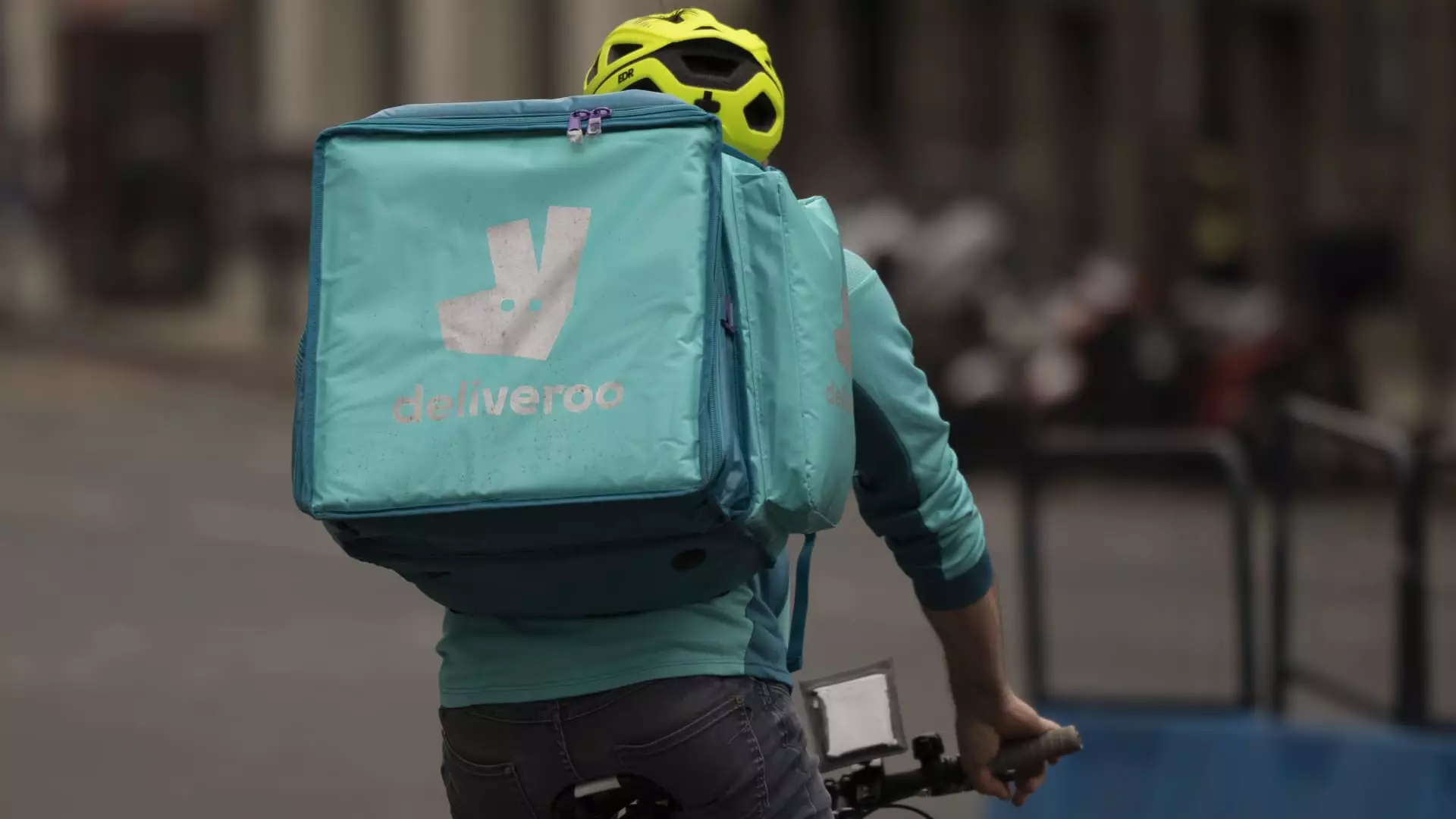In a surprising twist that reverberated through the food delivery landscape, British company Deliveroo has sold itself to American rival DoorDash for a staggering £2.9 billion ($3.9 billion). At first glance, the valuation of 180 pence per share (a 44% premium) appears generous in times when investors are jittery and market rallies feel ephemeral. Yet, one must question whether this deal is a validation of Deliveroo’s potential or merely a lifeboat in a sea of uncertainty.
While DoorDash’s CEO, Tony Xu, exudes enthusiasm about expanding operations across more than 40 countries and a billion people, the question remains: are these projections realistic or overly optimistic? For Deliveroo, a once-celebrated tech darling, this acquisition feels like a bittersweet ending. Its journey from skyrocketing IPO to a dismal 30% crash in 2021 serves as a stark reminder that even the most promising companies can lose their shine.
The Fragile Ecosystem: Market Realities for Food Delivery Companies
Deliveroo’s precarious position highlights crucial issues at play in the gig economy. Despite the temporary surge in popularity during lockdowns, the sustainability of such growth remains questionable. The intense competition within the food delivery market has fostered an environment rife with uncertainties. With concerns over regulatory pressures and evolving consumer expectations, investors have reason to doubt the longevity of these platforms.
This skepticism is not unfounded. The landscape has endured significant upheaval, illustrated by Deliveroo’s continued declines from its £3.90 IPO price. In a world where quick convenience is king, will new challengers emerge and supplant established players, or will rising stars like DoorDash eat up their market share and redefine industry standards?
A Shift in Corporate Philosophy: Lessons from Legal Challenges
Deliveroo’s struggles also shine a light on the inherent risks of the gig economy model, where workers often face exploitation amid demands for flexibility. Investors are increasingly wary of being tethered to companies that might be subject to legal challenges, especially as governments commit to protecting worker rights. The backlash against gig economy players is palpable, exemplifying a societal shift toward prioritizing fair compensation over convenience.
The legal and ethical implications create a complex web that not only affects public perception but can also directly impact financial performance. Companies like Deliveroo must adopt a more holistic approach toward corporate governance, steering clear of an “us vs. them” mentality. Failure to integrate fair labor practices could see not just legal woes, but consumer backlash that eats away at their credibility.
DoorDash’s Bold Strategy: Expansion vs. Sustainability
On the flip side, DoorDash’s acquisition of Deliveroo symbolizes a bold thrust into international waters, echoing similar attempts in recent years—like its purchase of Finnish app Wolt. However, such ambitious expansions should spark a critique of the long-term viability of these ventures. Are acquisitions a signal of astute vision, or are they merely desperate grabs at market share to counteract waning growth in their home market?
While DoorDash’s strategic posturing sounds promising, serious scrutiny is warranted. Is this approach sustainable, or could it provoke a precarious situation where rapid expansion ultimately leads to overreaching and financial strain? Balancing growth while ensuring quality in service delivery is no easy task, and many companies have often learned this lesson the hard way.
The Broader Landscape: Shifting Tides in Food Delivery
The consolidation trend within the food delivery industry reflects a broader phenomenon in the tech sector. Companies across various domains juggle profitability and growth in increasingly competitive marketplaces. As Deliveroo transitions from an independent operator to part of a larger conglomerate, it faces the upsides and downsides that come with merger and acquisition strategies.
With Just Eat also aligning with investment groups like Prosus, it becomes apparent that the food delivery sector is at a crossroads. These developments underscore a profound shift where older models must adapt or perish. Stakeholders in these industries would do well to reflect on Deliveroo’s story—how far can reasonable ambition carry you when balanced against stark market realities?
The lessons learned from Deliveroo’s tumultuous ride will linger in the minds of both investors and competitors alike.

